News
World first: Dutch team develop method to extract high-value protein from tomato leaf
27 Jun 2022Tomato leaves that are currently seen as a major waste stream in horticulture could provide a reliable and sustainable source of rubisco – a widespread plant protein that has potential in food and drink, say researchers.
Researchers at the Wageningen University & Research (WUR), the Netherlands, say they have become the first in the world to extract high-value rubisco protein from tomato leaves, one of the major co-streams of greenhouse horticulture.

“Our study proves that you can achieve substantial gains in sustainability by making better use of what you already have,” said project leader Marieke Bruins, a senior scientist in protein technology at WUR.
Rubisco: The next big alt-protein?
Rubisco (ribulose-1,5-biphosphate carboxylase oxygenase) is an enzyme crucial in photosynthesis, that is found in every leaf of every green plant in the world – often in considerable quantities.
In its pure form, rubisco has a neutral aroma, colour and flavour, a good balance of the essential amino acids, and good gelation properties, which make it an interesting prospect for development in the alt-protein space, noted the team in a recent press release.
Indeed, they noted that rubisco protein can be ‘very useful’ for processing into meat substitutes and dairy alternatives, since it can help to provide a firm ‘bite’ and improved mouthfeel.
In 2019, a study led by researchers from Wageningen Food & Biobased Research and the Nestlé Institute of Material Sciences, Switzerland, compared the functional properties of rubisco protein isolate – on this occasion isolated from sugar beet leaves – with commercial whey and soy protein isolates.
The study, concluded that rubisco had “comparable or superior functional properties to those of currently used whey and soy protein isolates”.
Writing at the time, the Wageningen-led team said the results highlighted the high potential of rubisco as a nutritious and functional food ingredient to face global food security and protein supply.
Method removes toxins from tomato leaves
The extraction of rubisco from tomato leaves uses similar methods to those developed by the WUR team for other crops and waste streams, including the method of extracting rubisco from sugar beet leaves.
However, Bruins and colleagues noted that the new method had to be adapted to remove the toxin hydroxytomatine from tomato leaves.
“Our method filters out the components that are smaller than the protein we want to extract, and this includes many toxins,” the lead researcher said.
The result of the extraction is a high-value protein powder, free of toxins, and ready to be used in food applications, the authors said, noting that the same method could also be suitable for extracting rubisco from the leaves of other food crops – such as potato or cassava, which, like tomato leaves, contain toxins that make them unsuitable for direct consumption.
Wanted: Private sector partners to scale up the ingredient
The team noted that harvesting food crops results in the yearly production of around 40 tonnes (for sugar beet) to 50 tonnes (for tomatoes) of crop residues, made up of leaves and stems, per hectare.
Traditionally, these residues are either ploughed back into the soil as fertiliser or are composted – both of which, the WUR team note, are low-value uses of the residues compared to extracting protein for human consumption.
Indeed, the researchers noted that the large-scale application of the process will increase the availability of plant-based proteins and contribute to a sustainable food supply for the growing global population.
They now hope to work with the private sector to further develop the technology to apply it on an industrial scale.
“That could mean working with greenhouse horticulture businesses, or businesses that use plant-based proteins as inputs. These might include producers of dairy and meat substitutes,” said Bruins.
Related news

Mintel releases its global food and drink trends for 2025
15 Oct 2024
Heading into 2025, Mintel has identified four key trends that food and beverage brands will need to keep their eyes on to stay competitive. We explore these four trends.
Read more
Surge in children's hydration market driven by underhydration concerns and celebrity endorsements
9 Oct 2024
The children’s hydration market has seen a dramatic increase in sales, rising by 1,179% year-over-year, according to a new report from market research firm SPINS. This surge is being driven by two main factors: growing concerns about underhydration in ...
Read more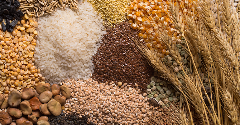
Sustainable grains present a healthy growth opportunity
3 Oct 2024
Food insights provider SPINS unveils the latest trends in the sustainable grains field, exploring how seven leading grains show healthy growth despite challenges in the global value chain.
Read more
Will we see a wave of NPD that focuses on insulin management?
1 Oct 2024
As a new study finds protein and fats can help manage insulin, food manufacturers are building on emerging GLP-1 platforms and supporting nutritional guidance.
Read more
New environmental food scoring standards emerge
30 Sep 2024
EIT Food and Foundation Earth collaborate to launch environmental food scoring for products entering the global supply chain.
Read more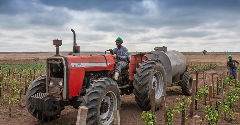
Africa progresses with food transformation strategy
19 Sep 2024
Large-scale efforts are underway to drastically change the African food sector with a $61 billion (€55 bn) set of proposed transformation plans to be implemented across forty countries. Yet there are concerns that this initiative severely jeopardises s...
Read more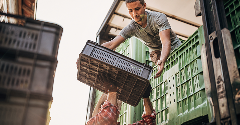
European Commission releases new supply chain recommendations
6 Sep 2024
The European Union’s (EU) legislative arm publishes its latest guidance on protecting the market’s food supply chain against current and future crises.
Read more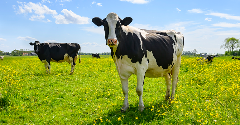
Tesco trials methane mitigation supplement for dairy cattle
5 Sep 2024
Tesco is trialing a methane-reducing feed supplement for one of its key UK dairy farms, sustainable UK milk producer Grosvenor Farms.
Read more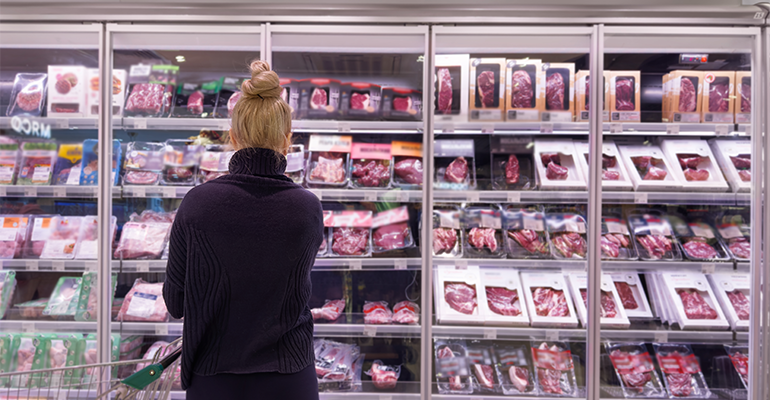
European consumers want more freedom to choose biotech-based food
3 Sep 2024
Survey findings point to growing levels of interest in cultivated meat as European consumers say they want the freedom to choose the lab-based products.
Read more
Will ‘foie gras’ become the EU’s first approved cultivated meat?
20 Aug 2024
French startup Gourmey has submitted its cultivated foie gras for approval in the European Union (EU), signalling the first application of its kind in the region.
Read more